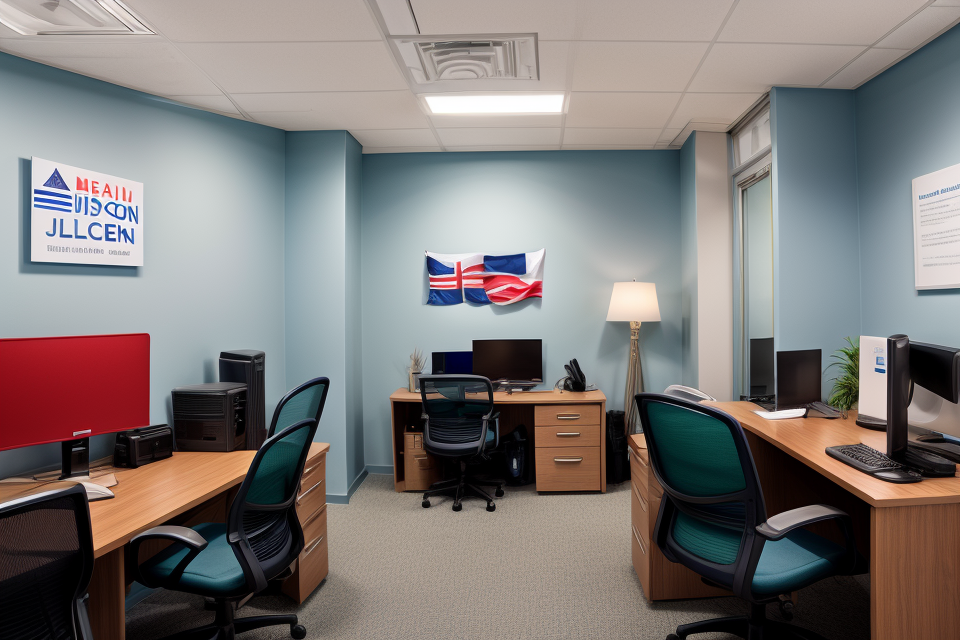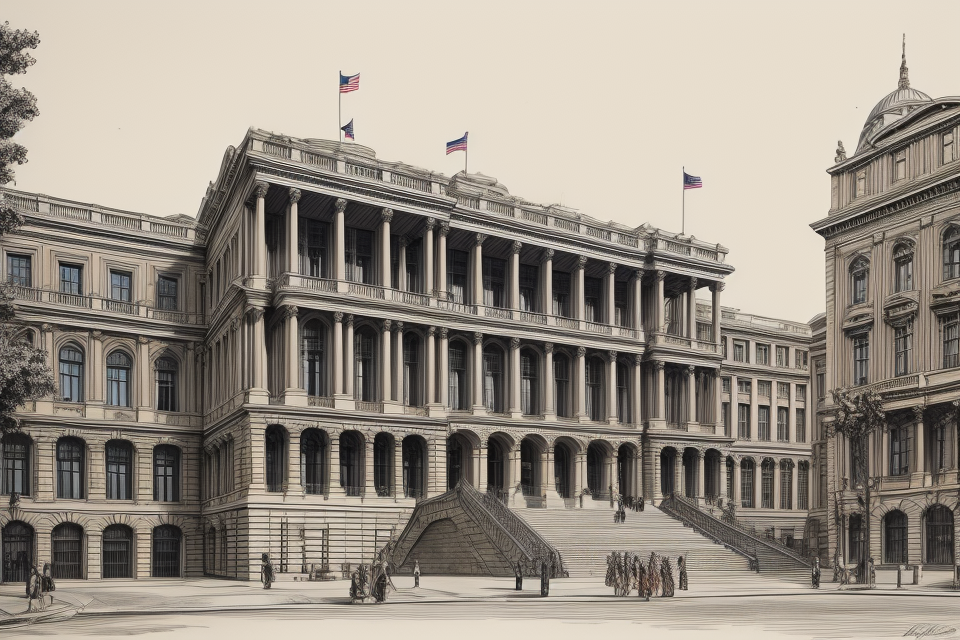Consulates are an essential part of a country’s diplomatic network, acting as a bridge between the government and its citizens abroad. They play a crucial role in providing support and assistance to citizens, facilitating trade and business opportunities, and promoting cultural exchange. In this comprehensive guide, we will explore the functions and services of consulates, shedding light on their role in maintaining diplomatic relations and enhancing international cooperation. Get ready to embark on a journey that will unravel the intricacies of consular affairs and provide a deeper understanding of the world we live in.
What are Consulates and Their Purpose
Consulates are official representative offices of a country in another country. They are established to facilitate and promote the interests of the sending country and its citizens in the host country. Consulates play a crucial role in maintaining and strengthening the relationship between the two countries and providing assistance to citizens of the sending country who are residing or traveling abroad.
History of Consulates
The history of consulates can be traced back to ancient times, where cities would appoint officials to represent their interests in other cities. The modern system of consulates began to take shape during the 16th century, with the establishment of permanent diplomatic missions between countries. Today, consulates can be found in almost every country in the world, serving as a vital link between the sending and host countries.
Types of Consulates
There are several types of consulates, including:
- General Consulates: These are the most common type of consulate and are responsible for providing a wide range of services to citizens of the sending country, including passport and visa services, notarization of documents, and assistance in cases of emergency.
- Commercial Consulates: These consulates focus on promoting trade and business opportunities between the sending and host countries. They provide assistance to companies and entrepreneurs looking to expand their operations in the host country.
- Cultural Consulates: These consulates promote the cultural exchange between the sending and host countries. They organize cultural events, provide support to artists and musicians, and promote the sending country’s culture in the host country.
Consulate vs. Embassy
While both consulates and embassies are diplomatic missions of a country in another country, there are some key differences between the two. An embassy is the main diplomatic mission of a country in a host country and is typically located in the capital city. Embassies are responsible for maintaining and strengthening the political and economic relations between the two countries, as well as providing consular services to citizens of the sending country.
A consulate, on the other hand, is a smaller diplomatic mission that is located outside of the capital city. Consulates are responsible for providing consular services to citizens of the sending country who are residing or traveling in the host country. While embassies are headed by an ambassador, consulates are headed by a consul general.
Consular Services for Citizens
Consulates play a vital role in providing a wide range of services to citizens of their respective countries. These services are designed to assist citizens in navigating the complexities of life abroad, and to ensure that their rights and interests are protected. The following are some of the most common consular services provided to citizens:
Passport Services
One of the most essential services provided by consulates is passport issuance and renewal. Consulates are responsible for issuing and renewing passports for citizens living abroad, as well as providing emergency travel documents to those who have lost their passports while traveling. In addition, consulates may also provide information on the requirements for obtaining a passport, as well as the procedures for renewing or replacing a lost or stolen passport.
Document Legalization
Consulates also play a crucial role in the legalization of documents. This involves certifying the authenticity of official documents, such as birth certificates, marriage certificates, and educational degrees, so that they can be used in the country where the citizen resides. Consulates may also provide information on the requirements for document legalization, as well as the procedures for obtaining certified copies of documents.
Notarial Services
Consulates also offer notarial services, which involve the certification of various legal documents. These services include the authentication of signatures, the administration of oaths, and the witnessing of signatures and other legal acts. Notarial services are often required for the execution of legal documents, such as contracts and wills, and consulates may provide information on the requirements for these services, as well as the procedures for obtaining them.
Assistance in Emergencies
Consulates also provide assistance to citizens in emergency situations. This may include providing emergency travel documents to citizens who have been forced to leave their country due to conflict or natural disaster, as well as providing information on the steps that citizens can take to protect themselves and their families in emergency situations. In addition, consulates may also provide information on the availability of medical care and other resources for citizens in need.
Overall, consular services for citizens are essential for ensuring the safety and well-being of citizens living abroad. By providing a wide range of services, including passport issuance and renewal, document legalization, notarial services, and emergency assistance, consulates play a vital role in protecting the rights and interests of citizens and ensuring that they are able to navigate the complexities of life abroad with ease.
Consular Services for Businesses
Consulates play a vital role in facilitating international trade and investment by providing a range of services to businesses. These services are designed to promote economic growth and development, as well as to protect the interests of businesses operating abroad. The following are some of the key consular services available to businesses:
Commercial Diplomacy
Commercial diplomacy is a key function of consulates, which involves promoting and protecting the commercial interests of their home country and its businesses. This can include providing market intelligence, facilitating business connections, and negotiating trade agreements. Consulates also play a role in resolving trade disputes and providing legal advice to businesses operating abroad.
Trade Promotion
Consulates provide a range of trade promotion services to businesses, including market research, business matchmaking, and participation in trade fairs and exhibitions. These services are designed to help businesses identify new markets, partners, and customers, and to build their global network of contacts. Consulates may also provide assistance with customs and regulatory compliance, as well as with the negotiation of contracts and other business agreements.
Investment Promotion
Consulates also play a key role in promoting foreign investment in their home country. This can include providing information on investment opportunities, regulations, and incentives, as well as facilitating connections with potential investors. Consulates may also provide assistance with the establishment of business operations in their home country, including help with visas, permits, and other administrative procedures.
Business Visas
Consulates are responsible for issuing business visas to foreign nationals who wish to travel to their home country for business purposes. These visas may be issued for a range of activities, including attending meetings and conferences, conducting business negotiations, and participating in training or professional development programs. Consulates may also provide assistance with obtaining work permits and other documentation required for business travel.
Consular Services for Immigrants
Immigrant Visas
Consulates play a crucial role in the immigration process by providing various services to individuals seeking to immigrate to their respective countries. One of the primary functions of consulates is to issue immigrant visas to individuals who have been approved for permanent residency in the host country. Immigrant visas are typically issued to individuals who have demonstrated a strong likelihood of success in their intended profession or industry, as well as a proven ability to contribute to the host country’s economy and society.
Refugee and Asylum Services
Consulates also provide crucial services to individuals seeking refugee or asylum status in the host country. These services include assisting individuals in navigating the complex legal processes involved in applying for refugee or asylum status, as well as providing guidance on the documentation and evidence required to support their claims. Consulates may also provide temporary accommodation and other forms of support to individuals who are awaiting a decision on their refugee or asylum application.
Dual Nationality
In some cases, individuals may hold dual nationality, meaning they are a citizen of both their country of origin and the host country. Consulates can provide guidance and assistance to individuals seeking to obtain dual nationality, including information on the requirements and processes involved in obtaining dual citizenship. Consulates may also provide support to individuals who are facing challenges related to their dual nationality, such as difficulties with travel or residency.
Overall, consular services for immigrants are an essential component of the immigration process, providing individuals with the support and guidance they need to navigate the complex legal and administrative processes involved in moving to a new country.
Consular Services for Education
Study Abroad Advising
Consulates play a vital role in providing guidance and support to students who wish to study abroad. They offer a range of services that include providing information on educational institutions, visa requirements, and other important details related to studying abroad. This can be particularly helpful for students who are unfamiliar with the process of applying for study abroad programs or who are looking for guidance on how to navigate the complexities of international education.
Scholarships and Grants
In addition to providing information on educational institutions and visa requirements, consulates also play an important role in helping students find funding for their studies. Many consulates offer scholarships and grants to students who are planning to study abroad, which can help to offset the costs of tuition, housing, and other expenses related to studying abroad. This can be a valuable resource for students who are looking to pursue their academic goals but who may not have the financial resources to do so.
Student Visas
Consulates are also responsible for issuing student visas to individuals who wish to study abroad. This involves verifying the student’s academic credentials and ensuring that they meet the necessary requirements for admission to an educational institution. Consulates may also require students to undergo a medical examination or provide additional documentation to support their visa application. This can be a complex and time-consuming process, but consulates are available to provide guidance and support throughout the process.
Overall, consular services for education are an important resource for students who wish to study abroad. They provide a range of services, including study abroad advising, scholarships and grants, and student visas, which can help to make the process of studying abroad easier and more accessible. By taking advantage of these services, students can gain valuable insights into the international education system and gain the skills and knowledge they need to succeed in their academic pursuits.
Consular Services for Travelers
When it comes to traveling abroad, consulates play a crucial role in providing various services to ensure a smooth and safe journey for travelers. Here are some of the consular services that travelers can avail themselves of:
Tourist Visas
One of the most important consular services for travelers is the issuance of tourist visas. A tourist visa is a document that allows a traveler to enter, stay in, and travel through a specific country for a certain period of time. The requirements for obtaining a tourist visa vary depending on the country of destination and the traveler’s nationality. Travelers can usually apply for a tourist visa at the embassy or consulate of the destination country in their home country or at a designated travel agency.
Travel Advisories
Another important service provided by consulates is travel advisories. Travel advisories are issued by the government of a country to advise its citizens of potential risks or threats while traveling abroad. These advisories can include information on safety and security, health risks, natural disasters, political unrest, and other factors that may affect the safety and well-being of travelers. Consulates may also provide assistance to travelers in case of an emergency or if they need help with a medical issue while abroad.
Entry Requirements
Consulates also provide information on entry requirements for travelers. Entry requirements can vary depending on the country of destination and the traveler’s nationality. Some countries require travelers to have a valid passport, while others may require additional documents such as a visa, vaccination certificate, or proof of insurance. Consulates can provide travelers with the most up-to-date information on entry requirements and can assist with the application process for necessary documents.
Overall, consular services for travelers are essential for ensuring a safe and enjoyable trip abroad. By providing information on tourist visas, travel advisories, and entry requirements, consulates can help travelers plan their trips and avoid any potential issues while abroad.
Consular Security and Diplomacy
Protection of Citizens
Consular security and diplomacy plays a crucial role in the protection of citizens in a foreign country. Consulates provide assistance to citizens in distress, such as those who have been arrested, injured, or are in need of emergency medical treatment. They also help citizens in obtaining necessary documents, such as passports and birth certificates, and provide information on local laws and regulations.
In addition, consulates work to ensure the safety and security of their citizens by providing travel advisories and warnings, and by coordinating with local authorities in case of emergencies. They also assist in the repatriation of the remains of deceased citizens and provide support to families of citizens who have been arrested or detained.
Promotion of National Interests
Consular security and diplomacy also plays a role in the promotion of national interests. Consulates work to promote economic and trade relations between their home country and the host country. They provide information and assistance to businesses and entrepreneurs looking to expand their operations in the host country, and work to resolve trade disputes and promote investment opportunities.
In addition, consulates promote cultural exchange and understanding between their home country and the host country. They organize cultural events and exchanges, and provide information on the history, culture, and customs of their home country to the host country.
Diplomatic Relations
Consular security and diplomacy also plays a role in maintaining diplomatic relations between their home country and the host country. Consulates serve as a point of contact between the two countries and work to resolve any issues or disputes that may arise. They also facilitate communication and cooperation on issues of mutual concern, such as terrorism, organized crime, and regional stability.
In addition, consulates play a role in promoting international cooperation and understanding. They participate in international organizations and conferences, and work to build partnerships and alliances with other countries. They also provide information and assistance to their home country’s nationals who are living or traveling abroad, and promote the interests and values of their home country on the international stage.
FAQs
1. What is a consulate?
A consulate is a diplomatic mission that represents the government of one country in another country. Consulates are typically located in major cities and are staffed by consular officers who provide a range of services to citizens of the sending country who are living or traveling abroad.
2. What are the functions of a consulate?
The primary function of a consulate is to provide assistance to citizens of the sending country who are living or traveling abroad. This can include providing advice and guidance on a wide range of issues, such as immigration, legal matters, and passport services. Consulates may also play a role in promoting economic and cultural ties between the sending and receiving countries, and may provide support to businesses and organizations from the sending country that are operating abroad.
3. What services do consulates provide to citizens?
Consulates typically provide a range of services to citizens of the sending country who are living or traveling abroad. These can include passport services, such as issuing new passports or adding visa pages, as well as assisting with the replacement of lost or stolen passports. Consulates may also provide assistance with immigration matters, such as renewing visas or obtaining residency permits, and may be able to provide advice and guidance on legal issues or other matters.
4. Can anyone access the services provided by a consulate?
In general, consulates provide services only to citizens of the sending country. This means that if you are not a citizen of the country that operates a consulate in the city where you are living or traveling, you may not be eligible for the services provided by that consulate. However, some consulates may offer limited services to residents or visitors in certain circumstances, so it is always a good idea to check with the consulate directly to see what services may be available to you.
5. What is the difference between a consulate and an embassy?
An embassy is a diplomatic mission that represents the government of one country in another country. Embassies are typically located in the capital city of the receiving country and are staffed by diplomats who are responsible for maintaining relations between the sending and receiving countries. Consulates, on the other hand, are typically located in major cities outside of the capital and are staffed by consular officers who provide assistance to citizens of the sending country who are living or traveling abroad. While embassies and consulates both serve as diplomatic missions, they have different functions and responsibilities.



